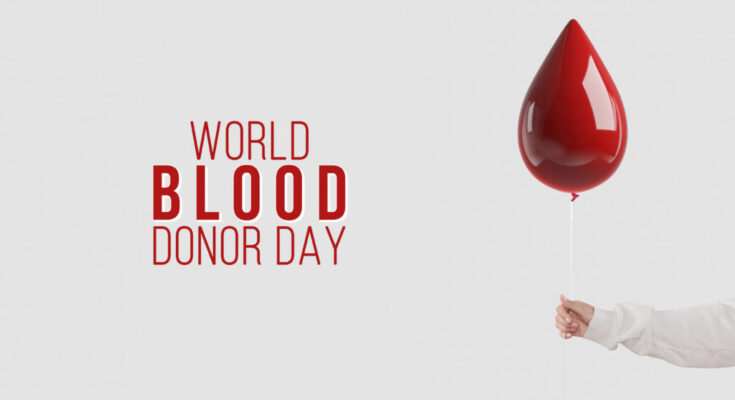What do you think donating blood will do to your body? Well, the most common guess might be an adverse effect on health. You’re not alone if that is your line of thought. While some people are afraid of needles, others are afraid of the potential health repercussions that they think blood donation can have.
But this may come as a surprise to you that blood donation can have a positive effect on your health. Yes, you read that right. This World Blood Donor Day, let’s dispel this myth that has survived the times. This blog will discuss some of the benefits of blood donation.
Health benefits of blood donation
Good for the heart
What if we tell you that blood donation is good for your heart? Regular blood donation sessions have shown patterns of lower blood pressure. And from what is known, low blood pressure reduces the risks of heart attacks.
It may help reduce the risks of blood clotting. This applies mostly to patients with high haemoglobin. When they donate blood, they lower the viscosity of the blood, which is linked with the formation of blood clots, leading to stroke and heart attacks.
Regular blood donation is linked to lower blood pressure and a lower risk of heart attacks. Interestingly, these benefits may be apparent more in men than women. Women anyway lose a lot of blood during their mensuration cycle.
May help you prevent some cancers
Blood donation may also decrease the risk of cancer. When you donate blood, the body balances its iron levels, which lowers the risk of certain types of cancers, including liver, colon, lung, and stomach cancers.
Keeps your liver healthy
Donating blood is beneficial for the whole body, including your liver. The practice may help prevent health issues such as non-alcoholic fatty liverwhich are associated with high levels of iron in the body. In addition, several other liver diseases such as Hepatitis C can also be prevented as they are associated with blood impurity. As blood donation can replace the former blood cells with newer healthy cells and remove iron, it may contribute to prevention.
Replenishes your blood cells
In short, the body makes up for the loss. If you lose blood cells, the body will produce new healthy blood cells in replacement. Hence, when you donate blood, your body goes through the detox phase wherein new and healthy blood cells are produced.
Boosts the immune system
Blood donation can rejuvenate the system by producing new healthy red blood cells. This helps boost immunity and help you fight diseases.
Helps you burn more calories
This may come as good news to you if you’re looking to lose weight. Interestingly, one blood donation session can burn up to 500-600 calories as the body works hard to regenerate new blood cells to make up for the lost ones. This doesn’t mean you go for blood donation frequently, you can do so every 56 days. And if you want to lose weight, resort to strength training and healthy eating.
Who can and cannot donate blood?
- People over the age of 18 and below the age of 65 can donate blood.
- Their haemoglobin count must not be below 12.5 g/dl.
- They should weigh above 50 kg.
- They should be healthy, and not suffering from any acute or chronic disease.
- Their blood pressure levels should be healthy.
- Pregnant and breastfeeding ladies should refrain from donating blood.
- Anyone who has undergone recent surgeries should refrain too.
Closing thoughts
Donating blood can save lives. It is one step that you shouldn’t think about twice (unless you don’t meet the eligibility criteria for donating blood). It has numerous benefits, not just for the patient you are donating blood to, but for yourself as well. As established here, blood donation can have multiple benefits for your health, starting from detoxification to improving immunity. Don’t think twice, donate blood to save lives.
Source link



